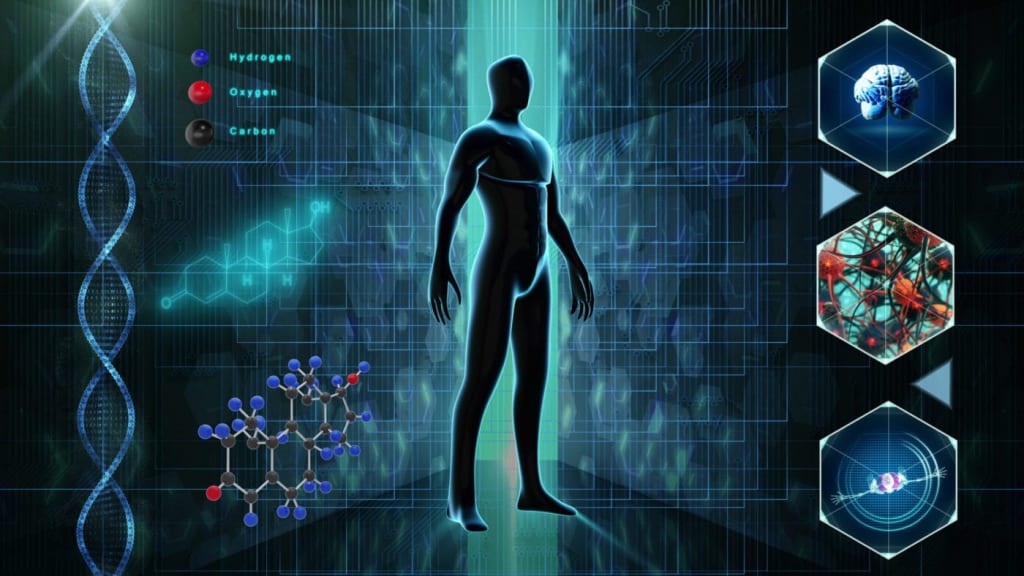Amazing Things the Human Body Does Every Minute
Being your very own supercomputer

When you have a stuffy nose, it makes you appreciate breathing smoothly. Our bodies work hard to keep us comfortable every day. Let's be grateful and acknowledge some amazing things our body does every minute. Our eyes constantly send visual information to the brain. The cornea bends light, the iris adjusts light, and the lens focuses light onto the retina. The retina transforms light into electrical signals sent to the brain for interpretation. All this happens in milliseconds. In just one minute, our brain handles around 600 million bits of visual data!
Our bodies are mostly made of water, around 55% for ladies and 65% for gentlemen. Luckily, our bodies have a hydration monitor to keep this balance in check. It constantly monitors how much water we lose through sweating and breathing. Feeling thirsty kicks in if even just 1% of our water is lost. Stay hydrated and keep that water balance happy
Our hearts keep us alive and pump blood throughout our bodies. Your heart rate can vary based on your fitness level, emotions, and activities. Doctors say adults usually have 60 to 100 heartbeats per minute at rest. The fitter you are, the lower your heart rate might be. When your heart beats, it pumps about 2.4 ounces of blood.
Even when we lose blood, our bodies work quickly to replace it. Within 24 hours, the lost volume is replaced, and within weeks, we're back to normal. Our bodies make around 2 million new red blood cells every second. For white blood cells and platelets, the process is even faster.
Adults typically breathe around 12 to 20 times per minute. Infants have a faster rate of 30 to 60 breaths per minute. Our bodies are incredible in how they work to keep us healthy and alive.
Breathing requires teamwork - your brain sends signals to your diaphragm and muscles to expand your chest and bring air into your lungs. Breathing out is easier as your elastic lungs push out air. Sometimes your abs help out too. Our brains can read up to 1,000 words per minute, allowing us to finish a 300-page book in just 2 and a 1/2 hours! Our eyes make quick jumps, called saccades, across the text to absorb information rapidly. These jumps happen multiple times a second, depending on how good we are at reading and how familiar we are with the topic. If you want to learn more about various topics, keep reading and explore new things!
Our skin, the largest organ in our bodies, sheds around 30,000 cells every minute. Most of the time, we don't even notice this process. Our faces and bodies are constantly removing layers, revealing fresh skin cells. That dust around your house? A lot of it is actually you! It takes a month for new skin cells to reach the surface. As we age, this process can slow down. In our 60s or later, it can take up to 8 weeks for cell turnover. This buildup of skin can make your complexion look dull. Luckily, there are many products available to help with dry skin, such as moisturizers and serums.
Our tongue, along with our lips and teeth, turn throat sounds into words that make sense. The tongue is flexible and speedy, capable of producing over 90 words a minute with over 20 different moves. While we can vocalize without it, the tongue is essential for pronouncing consonants like T, D, L, and R. It's also why parrots can easily imitate human speech. These birds have thick tongues and fewer muscle movements, allowing them to mimic us accurately. So watch what you say around them!
Humans blink 15 to 20 times each minute. It may not seem like a lot, but it means we spend about 10% of our awake time with our eyes shut. Scientists believe blinking helps keep our eyes moist and produce tears. Blinking also creates a cover for the eyeball, preventing it from feeling itchy. A study from the past decade found that blinking acts as a mini reset button for the brain. When we blink, the brain powers down some parts linked to vision and attention. These blink moments could be like time travel or mini power naps for our brains.
People have around 35 to 48 thoughts per minute, depending on various factors. Our thoughts are influenced by our experiences, emotions, and surroundings. Brain cells communicate with each other to form ideas, but the exact process is still a mystery. Neurons in our brain shoot out electrical charges to talk to each other, like friends passing notes. These neurons release neurotransmitters, creating electric signals in our brains. As these signals travel through thousands of neurons, thoughts pop up in our heads like waves of inspiration. When you snack, you're fueling up your body's power plant. Each calorie from your food equals around 4200 energy units called Jewels. If you eat 2,000 calories a day, you're creating almost 6,000 Jewels every minute. Your food goes on a journey through your mouth, stomach, and bloodstream like tiny delivery trucks. Inside your cells are factories called mitochondria that turn deliveries into ATP - our cells' energy currency. ATP helps us move, make more cells, and send messages through electrical impulses. Isn't it amazing how our bodies work? Let's be kind to our bodies for all they do!
About the Creator
Enjoyed the story? Support the Creator.
Subscribe for free to receive all their stories in your feed. You could also pledge your support or give them a one-off tip, letting them know you appreciate their work.





Comments
There are no comments for this story
Be the first to respond and start the conversation.